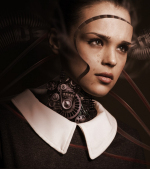
The emergence of true artificial intelligence is one of those forecasted trends that’s been rapidly climbing the list of “ones to watch” for several years now.
Lots of charities are looking at how it could be used, or misused. And lots more are probably quite rightly concerned about its dangers and its ethics, and the impact it could have if users and developers are allowed to run free with it.
Like many of us, I’ve played with ChatGPT to get a sense of what it’s all about, and with the recent addition of Elon Musk’s version, Grok, into the subscription version of X, a lot more people will inevitably be finding a lot more uses for it even as I write.
But futurology comes in two flavours: things that will change, and things that will remain the same. And Musk’s choice of name for his new AI might ironically point to an increasingly important example of something that even AI will not change.
For the uninitiated, the word grok was coined in the ‘60’s by science fiction writer Robert A. Heinlein to describe an aspect of Martian culture, in much the same way that Anthony Burgess used neologisms to bring his futuristic teen culture to life in A Clockwork Orange.
Grok, however, lived on after the novel, being adopted and developed by computer programmers to mean a deep and intuitive understanding of something – a genuine holistic feel for it as distinct from simply an intellectual knowledge of it.
It was defined in the Hacker’s Dictionary thus: “When you claim to “grok” some knowledge or technique, you are asserting that you have not merely learned it in a detached instrumental way but that it has become part of you, part of your identity.”
Why am I telling you this?
Because I can read about what it’s like to be in an abusive relationship, or survive a war, or grow up with a skin colour that’s different to everyone else, and intellectually I can learn about the situations and behaviours and hopefully a bit about how it must have felt.
Or I can personally spend time with people who’ve been there, explore their experience with them, deepen my understanding and my knowledge, develop much better sense of what it was like to actually live through that situation, how it affected and perhaps still affects them now.
But can I ever really grok what they went through? Can I ever see the world as they see it today having been through that experience? Can their experience ever become a part of me, shape me, shift how I intuitively think and act?
It’s no different on the other side of the equation – one of the hardest lessons I’ve had to learn as a parent of teenage boys is that it appears there are some things my kids will simply have to learn for themselves. To quote my mother (and it speaks volumes that I find myself now quoting my mother) “You can tell ‘em ‘till yer blue in the face”.
There is a profound difference between having been warned of the dangers, and of having made the catastrophic errors yourself and fixed them. Afterwards you are changed, you do see things differently, invariably in a way that no amount of listening, lecturing, or reading can achieve.
It will inevitably be the case that technology becomes more knowledgeable than we are, if it hasn’t already. And we will likely find an increasing number of areas where AI can spot more patterns and relationships, and make more rational and intelligent decisions and predictions, more quickly and consistently that we can.
And in however many years’ time, some flavours of it might well be able to combine that knowledge and intelligence to become more proficient and creative than us in a host of other ways.
But one thing AI will not change, is what we gain from real, lived experience. Just as no amount of reports and analysis on the impact of social issues on real people, can ever compare to having experienced that impact yourself. Information changes what you know. Lived experience changes how you think.
Apparently, Musk chose the name Grok because it’s his ambition to create an AI that can not only provide endless knowledge, and has the intelligence to weave that knowledge into new stories or pictures or films, but will actually go on to develop an intuitive understanding of the nature of the universe.
My mother has another phrase which springs to mind, invariably accompanied by the wry smile of her own lived experience: “Good luck with that one, son!”
